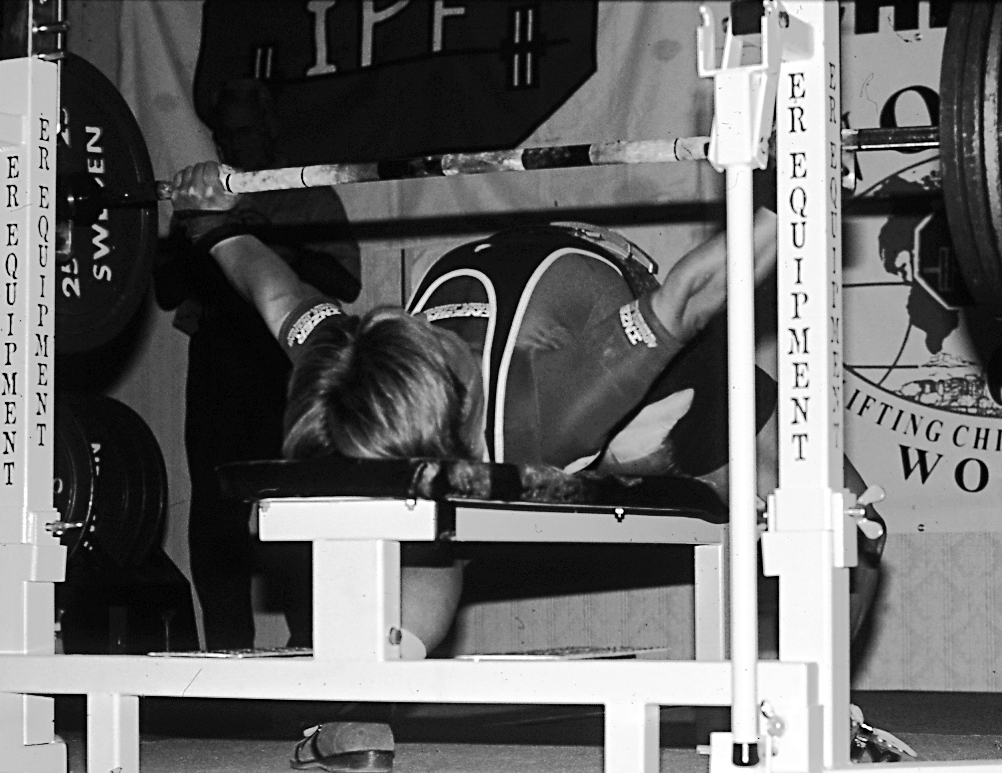To add to @Philippe Geoffrion's excellent post above, I've noticed that bench pressers who have not been properly coached tend to flare the elbows during the press and generally have the elbows too far away from the ribcage, often perfectly perpendicular to the ribcage. I think this is problematic for the shoulders in terms of impingement (although shoulder anatomy varies from person to person) but also it doesn't promote good stability and the many muscle groups working together.
In terms of bench press strength maintenance, I have found that mine goes away if I don't practice it. My press is strong and I can press > 100 lbs overhead, but would probably struggle to bench press it right now. My highest 1RM was 155 lbs about 2 yrs ago.
In terms of bench press strength maintenance, I have found that mine goes away if I don't practice it. My press is strong and I can press > 100 lbs overhead, but would probably struggle to bench press it right now. My highest 1RM was 155 lbs about 2 yrs ago.

